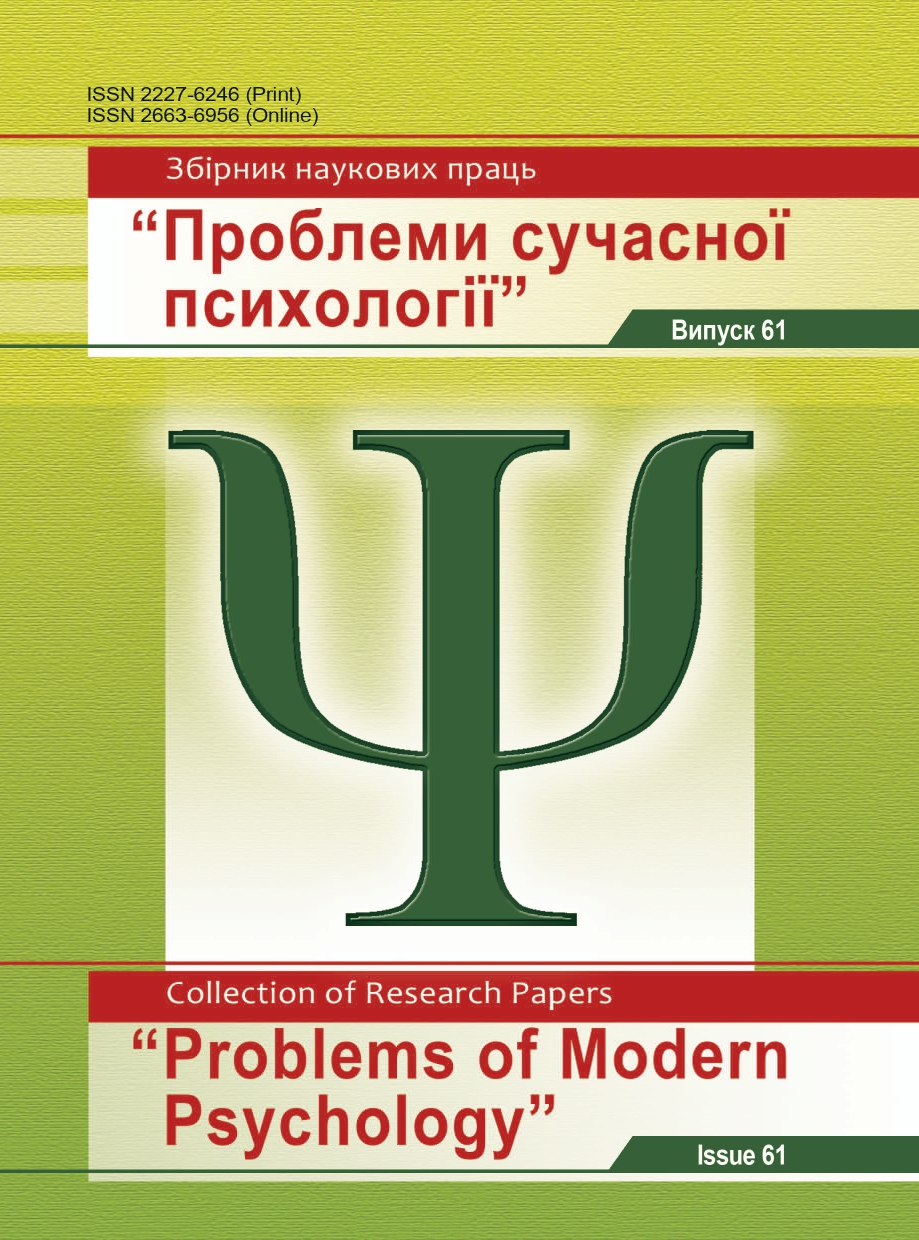Psychological Paradigm of the Implementation of Awakening-Motivational, Analytical-Synthetic and Executive Phases into the Process of Translation Activity
DOI:
https://doi.org/10.32626/2227-6246.2023-61.30-50Keywords:
translation activity, oral translational activity, awakening-motivational phase, analytical-synthetic phase, executive phase, social communication, speed, automatism, reflectionAbstract
The purpose of our research is to reveal the ways of the implementation of awakening-motivational, analytical-synthetic and executive phases into the process of translation activity.
Methods of the research. The following theoretical methods of the research were used to solve the tasks formulated in the article: the categorical method, structural and functional methods, the methods of the analysis, systematization, modeling and generalization. The ascertaining research was used as an empirical method.
The results of the research. Analyzing speech activity, we’d like to emphasize that each individual act of the translation activity begins with a motive and planning. Also, each act ends with a result, the achievement of a certain goal, and the basis of the structure of the translation activity. In such a way, translation activity is a dynamic system of specific actions and operations, which have the aim to be the result of this achievement. Such a dynamic system of Translation is the basis of the operational and prognostic mechanisms of the translator’s activity; it largely determines the speed and automatism of translation activities in the whole. The psychological content of translation activity includes different conditions of this activity, in which this activity takes a place. In such a way translation activity is determined by such elements, as the subject, means, tools, product and result.
Conclusions. The subject of the translational activity determines its nature. It is precisely in it that the need of providing translational activity is realized. For example, in oral translational activity the subject is thought as a form of reflection of the relationships between objects and phenomena of a natural reality. It is in the process of expressing thoughts that the purpose of speech lies, in particular, in the reproduction of thoughts by the translator. The purpose of listening is realized, in turn. At the same time, a foreign language is a means of social communication, a means of expression and understanding, a tool of translational activity. It is a thought as an element of the psychological content of oral translational activity that determines the features and the conditions of its implementation.
Downloads
Published
How to Cite
Issue
Section
License
Copyright (c) 2023 Ivashkevych Ernest

This work is licensed under a Creative Commons Attribution-NonCommercial 4.0 International License.
Copyright
The Editorial Board has the full right to publish original scientific papers containing results of theoretical and experimental research works which are not currently subject to review for publication in other scientific editions. The Author shall transfer to the editorial board of the Collection the right to spread the electronic version of the paper, as well as the electronic version of the paper translated into English (for papers originally submitted in Ukrainian and Russian) by all kinds of electronic means (placement at the official website of the Collection, electronic databases, repositories etc).
The Author of an article reserves the right to use materials of the paper, without approval with the editorial board and the founders of this Collection: a) partially or fully, for educational purposes; b) for writing own dissertation papers; c) for preparation of abstracts, conference reports and presentations.
The Author of an article can place electronic copies of the paper (including the final electronic version downloaded from the official website of the Collection) at:
- personal web resources of all Authors (websites, webpages, blogs etc.);
- web resources of the institutions where the Authors are employed (including electronic institutional repositories);
- non-profit public access web resources (for example, arXiv.org).
But in all cases, it is obligatory to have a bibliographic reference to the paper, or a hyperlink to its electronic copy placed at the official website of this Collection.






